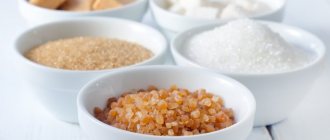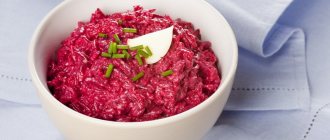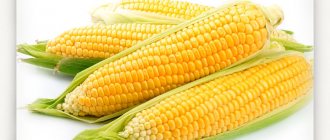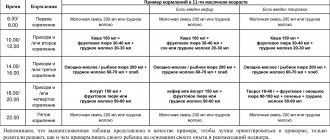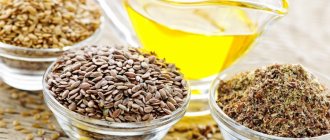During breastfeeding, mothers need to carefully monitor their diet. Young mothers ask a lot of questions, for example, is it possible to eat chocolate, fish and other foods during breastfeeding? Now let’s look at the most pressing question for young parents and find out whether herring can be consumed during this period.
A little about breastfeeding
The lactation process consists of the formation of milk in the mammary gland, its accumulation, and excretion. Natural feeding is priceless, and the composition of human milk is unique. Once in the stomach and intestines of a woman, food is digested throughout the entire intestine. The substances are absorbed by its walls and delivered through the blood and lymph to the breast, where milk is produced.
Nutrition during guardianship should be balanced. It is important to drink enough fluids, but not excessively, to avoid swelling. Psychologists say that eating restrictions can trigger postpartum depression during breastfeeding. Therefore, there are no strict restrictions on the choice of food; almost everything is allowed.
It must be remembered that the child is especially vulnerable in the first weeks; the main principle when compiling a mother’s menu is to do no harm.
How to eat herring during lactation
The mother's body loses many beneficial microorganisms during pregnancy and childbirth. Therefore, a woman needs to restore this balance as soon as possible so that the baby can enjoy nutritious milk.
It is immediately necessary to note the fact that in each region doctors have their own specific work. Therefore, the list of prohibited products in each region is different. Some mother's lists allow herring, but some do not.
From this we can conclude that a woman needs to understand for herself how useful herring can be for her and her child, or, conversely, what harm it can cause.
The only nutritional rule that a woman must adhere to is to consume all foods. But all products, including herring, can only be included from the age of 3 months. Before this period, mother needs to give up not only herring, but also chocolate, smoked meats, salty and fried foods.
A few more words about herring. If your soul really wants herring, then you need to carefully check it for tapeworms, as we said above. In addition, check if there is vinegar in the herring dish you want to eat. If a dish contains vinegar, you should not eat it.
You can find out what foods increase lactation in our article. Read here what fruits a nursing mother can eat.
Is it possible to eat oatmeal cookies while breastfeeding, read the link
In this case, the fish can be seasoned with spices. But the most important thing is that these spices are not heavy. Otherwise, the child may experience serious health complications.
Here are the most common herbs that can be used for cooking during breastfeeding:
- Pepper;
- Dry mustard, only in a small dose;
- Ground cardamom;
- Saffron.
If these herbs do not bring you much pleasure, then you can replace them. But first, you need to consult a doctor, since during breastfeeding a woman cannot use all herbs in cooking.
The benefits of fish
Like any fish, herring contains a lot of substances beneficial to the body:
- omega-3 fatty acids;
- vitamin complexes A, B12, B2, B1, D;
- potassium;
- iodine;
- folic acid;
- copper;
- selenium;
- choline
When answering the question whether a nursing mother can eat herring, it should be noted that all the valuable substances included in its composition are necessary for the body. They have a beneficial effect on vision and promote the proper functioning of the cardiovascular and nervous systems. The iodine contained in herring is essential for stable functioning of the thyroid gland. Like chicken meat, fish has a low glycemic index, which helps maintain normal blood sugar levels.
Herring is a low-calorie product, containing only 90 kcal for every 100 grams. This is important for young mothers watching their figure.
Possible negative reactions to fish
The composition and taste of human milk depend on what the woman will eat. The traditional set of products recommended for breastfeeding includes porridge, soups (chicken, vegetable), pasta, chicken meat, low-fat fish, fermented baked milk, curd products, cheeses, butter, brown bread, vegetables, fruits, cookies, compotes, jelly and etc.
As you can see, fish is a permitted product. However, it is important to remember that when breastfeeding you need to be careful about foods that can cause allergic reactions in the newborn. Along with citrus fruits, honey, and strawberries, herring is an allergenic product.
Allergens enter breast milk within 50-60 minutes and continue to do so for 6-15 hours. A reaction to salted fish can appear in a baby in the form of a rash, pimples, and intestinal upset. The child's sleep may be disturbed. The baby may refuse to breastfeed. You will need to pump your breasts, wait until your milk returns to normal, and feed your baby later.
Up to 3 months, the newborn’s stomach is imperfect and is capable of reacting sharply to changes in the diet of the nursing mother. Therefore, pediatricians do not recommend that women consume herring until the baby reaches 3 months of age. It is better to use chicken meat and other lean meats during this period instead of herring.
Harm from herring
In addition to the beneficial effects on the body, eating herring during breastfeeding can negatively affect the body of the mother and newborn. Most manufacturers use special preservatives to increase shelf life. The most common is sodium mesoate. Salted herring has a food concentrate that is not harmful to the body, but can affect the weakened body of a nursing mother, and therefore the condition of the baby. It has been proven that this additive can cause allergic reactions and the development of urticaria.
Contraindications for herring during hepatitis B
You should avoid herring if you have the following pathological processes:
- for kidney diseases;
- high likelihood of swelling;
- if there are diseases of the gastrointestinal tract (ulcer or gastritis);
- with atherosclerosis;
- the likelihood of migraines;
- if there is suspicion of diabetes mellitus;
- in case of allergic reactions to the product.
Doctors do not recommend consuming herring during breastfeeding in the first month after the birth of the child. This is due to the fact that the baby’s digestion has not yet formed, so in the first month a nursing mother should follow a diet, carefully selecting foods for her diet.
If the taste of milk changes, the baby may refuse to breastfeed
Possible negative reactions of the baby
A mother who is breastfeeding should be careful when introducing herring into her diet. Herring consumed during breastfeeding can cause the following negative reactions in the baby:
- increased formation of gases;
- allergic rash;
- refusal to breastfeed if the taste of milk changes.
Important! The taste of breast milk may change if you eat salted herring. This can occur from the marinade used and the high salt content in the product.
Allergic reactions
In the first months of life, a newborn has increased sensitivity to the foods that the mother eats, because most of the nutritional elements are supplied to him through breast milk. Herring is one of the strong allergens. It should be used carefully when breastfeeding so as not to cause allergic reactions in the newborn.
Possible allergic reactions in infants:
- hives;
- diathesis.
The main reason for food allergies in infants is the imperfection of the digestive system. If the allergen enters the body excessively, problems with the respiratory system may occur.
Salted fish
Let's figure out whether nursing mothers are allowed to eat salted herring. When salting, a lot of salt is used, which can retain fluid in the body. Please note that fresh and salted herring contain 6 and 14 grams of salt per 100 grams of fish, respectively. Swelling during feeding is an extremely undesirable phenomenon, leading to disruption of water-salt and hormonal balance in the body.
To prevent lactation from being upset, it is recommended to buy lightly salted herring or prepare it yourself from fresh fish, using a limited amount of salt and vinegar. While you are breastfeeding, it is better not to use herbs. They will give the milk an unpleasant aroma and taste. When the mother feeds the child, he will feel it. To add flavor to the dish, you can use cardamom, saffron, and a little dry mustard.
Herring under a fur coat
Is it possible to eat herring under a fur coat? To answer this question, you need to look at the salad ingredients. In addition to salted fish, the classic recipe includes beets, carrots, potatoes - foods that a nursing mother can eat, and onions with mayonnaise.
Mayonnaise can become a strong allergen. In store-bought mayonnaise, all the components are unnatural; there are many preservatives and additives. It contains mustard, vinegar, and chicken eggs, which are undesirable for babies. It would be better to make the sauce yourself or add yogurt or sour cream instead. It is better to choose sour cream that is not too fatty. The taste of the salad will change slightly, but the composition will remain classic. The calorie content of a salad without mayonnaise is low. You can replace mayonnaise with vegetable oil.
Recipes for herring under a fur coat for nursing
Without mayonnaise
- Herring – 1 piece;
- Egg - 3 pieces;
- Beets – 1 piece;
- Carrots – 2 pieces;
- Potatoes – 3 pieces;
- Sour cream – 350 grams;
- Salt and mustard to taste.
Cook carrots, potatoes and eggs separately. Peel the herring and cut into pieces. Peel vegetables and eggs too. Grate the first ones, divide the second ones into whites and yolks, chop them, chop the onion. Mix sour cream with a small amount of mustard. By the way, you can use chopped garlic instead of mustard.
Place the herring in the first layer, then onions and potatoes, which are lightly salted and coated with sour cream sauce. Followed by carrots, egg whites and beets. Each layer is smeared with sauce, and the salad is decorated with chopped yolk and a sprig of parsley on top.
With apples without potatoes
- Herring – 1 piece;
- Apple – 1 piece;
- Beets – 1 piece;
- Carrots – 2 pieces;
- Eggs – 3 pieces;
- Onion – 1 pc.;
- Natural low-fat yogurt – 350 grams.
If desired, you can add salt and chopped garlic or a little mustard to the yogurt. Separately boil the eggs, peel and finely chop. We leave the beets and carrots raw and peel them along with the onions and apples. We chop the last one, grate the rest of the vegetables and the apple.
Peel the herring and cut into pieces. Grease the dishes with yogurt sauce, lay out carrots, then herring, onions, apples, eggs and beets. Don't forget to coat each layer with dressing.
Without potatoes and mayonnaise
- Beets – 1 piece;
- Carrots – 2 pieces;
- Herring – 1 piece;
- Eggs – 3 pieces;
- Low-calorie natural yogurt – 1.5 cups;
- Mustard – 10 grams.
Separately cook beets, carrots and eggs.
Clean and grate the ingredients. We clean the herring and cut it into cubes. For dressing, mix yogurt and mustard. By the way, instead of yogurt, you can take 300 grams of cottage cheese. Lay out the ingredients, starting with carrots, then add herring, beets and eggs. At the same time, coat each layer with sauce. You can find healthy and safe salad recipes that can be eaten by a nursing mother at the link. Subscribe to our VKontakte group
Which fish to choose?
In most cases, herring will not cause harm when breastfeeding . The main thing is that the fish is of high quality. When purchasing herring in a store or market, first of all make sure that it is fresh. A good fish has elastic gills of a dark red hue. If it emits an unpleasant bitter odor or is saponified, this indicates improper storage. Pay attention to the pupils: cloudy ones indicate that too much salt was used when salting. With less salt use, the pupils remain red.
Its taste depends on its habitat. Ocean water contains more iodine than river water. The Far Eastern one is the fattest. When choosing between lightly salted, lightly salted and highly salted, remember that lightly salted herring may contain pathogens.
Give preference to fish without added sauce, vinegar or additional ingredients. Pay attention to the date of manufacture and shelf life indicated on the packaging. It is safer to choose a product from a trusted manufacturer with guaranteed quality.
How much herring can you eat?
Pediatricians do not prohibit a nursing mother from eating herring. There are no strict restrictions. But this must be done taking into account the possible risk of allergic reactions. If the desire to eat fish is great, do it when the baby is 3 months old, following simple rules:
- Start with one small piece and watch your baby.
- Do not eat herring more than several times a week.
- Herring must be fresh and not contain many impurities or preservatives.
- It is better to avoid fried fish. It is healthier to boil or bake it.
- When choosing salted herring, it is preferable to purchase lightly salted herring, without unnecessary additives.
Herring under a fur coat on the menu of a nursing mother
After you have introduced herring into your diet, you can cook and eat herring under a fur coat. Thus, salad should not be eaten earlier than three months after the baby is born. At the same time, it is important that each component of the salad is already included in the menu for breastfeeding. It is advisable to salt the fish for the dish yourself or choose lightly salted varieties.
Start with a small spoon and carefully monitor the baby's reaction. If the baby does not have digestive or bowel problems or allergy symptoms, you can increase the portion of salad.
This salad is not recommended if a child has food allergies or is prone to allergies, with kidney, intestinal and bladder diseases, with increased stomach acidity and digestive problems. It is not recommended to eat the dish more than twice a week.
When you have to give up fish
You will have to give up your favorite treat if your baby develops an allergic reaction, colic, or increased gas production. It is not recommended to eat herring if the mother has increased acidity of gastric juice or has diseases of the stomach or intestines, bladder, or kidneys. In all these cases, herring is contraindicated for a nursing mother.
Having studied the question, we can confidently answer: herring is safe and healthy to eat while you are breastfeeding. The main thing is to observe moderation in everything and note all the baby’s reactions. At the slightest suspicion of undesirable manifestations, it is better to refuse your favorite dish while breastfeeding. The main thing is the health of the child.
Herring during breastfeeding
Fish is a storehouse of useful components, including saturated fats and iodine, which are essential for the health of the thyroid gland. Eating fish leads to preventive measures for cardiovascular diseases. Moreover, fish is a very tasty product that can add variety to the menu during breastfeeding. However, can a nursing mother eat herring, because it is a salty product, which by its nature can provoke allergic reactions in a newborn.
In clinical practice, children with an allergy to fish are rarely encountered, because if their parents have not recorded this phenomenon, then the likelihood of its occurrence in children is extremely low. The same applies to women during lactation. But a very important factor is how the fish was salted and what ingredients were used.
Important! It is advisable to give preference to fish that has not been salted with hot sauces, mustard, mayonnaise or vinegar. It is best to purchase frozen herring and pickle it at home to be sure that no preservatives were used for its preparation.
When choosing a finished fish, you need to pay attention to its integrity: the presence of scales, eyes and gills. It is better to avoid herring with soft flesh, since fresh fish fillets should be elastic.


